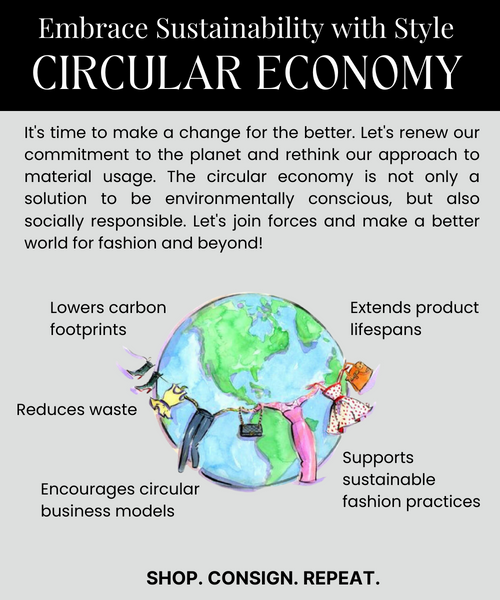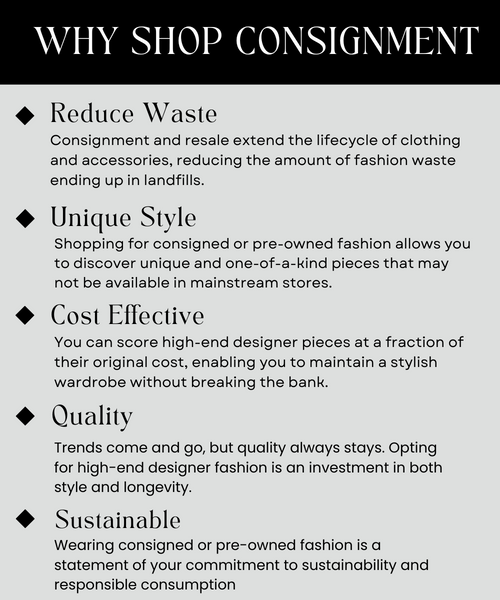Support the Circular Economy by Shopping Consignment
What’s in for 2024? Embracing the circular economy. In order to do that, we must be familiar with what that concept is truly about. Its approach is straightforward: rather than discarding products and materials, give them a new lease of life by reusing, refurbishing, reselling, regenerating, or recycling. This stands in stark contrast to the old "take, make, dispose" way of doing things.

What is the Circular Economy?
The concept of the circular economy originated in the 1970s, with the idea of minimizing waste and maximizing resource efficiency. It gained traction in the 1990s, as environmental concerns grew and the limitations of the linear economy became evident. The circular economy aims to redefine the traditional take-make-waste model by promoting principles such as reuse, recycling, and regeneration of materials. It emphasizes the importance of designing products with longer lifecycles and implementing strategies like product and material leasing, remanufacturing, and waste-to-energy processes.
In 2024, it is crucial that we prioritize and actively work towards becoming more sustainable for multiple reasons. First and foremost, the environmental crisis is rapidly escalating, with the impacts of climate change becoming more severe. We must reduce carbon emissions, protect natural resources, and promote renewable energy sources to mitigate this crisis. Additionally, adopting a circular economy will not only benefit the planet but also lead to economic growth, job creation, and improved public health. By embracing sustainability, we can ensure a better, more secure future for ourselves and future generations.
Shopping Consignment is supporting the Circular Economy
Our team at Michael's Consignment is committed to fulfilling our role by serving those who are interested in making more informed, eco-friendly fashion choices.
By being a Michael’s customer, you are already embracing the circular economy movement. Purchasing second-hand or pre-owned clothing extends the lifespan of garments. This reduces the demand for new production, conserving resources and energy that would be used in the manufacturing process. You’re also buying high-end quality products that are designed to last longer. Investing in durable and well-made items means they are less likely to wear out quickly, reducing the frequency of replacements. Consigning your preowned pieces with Michael’s also contributes to the circular economy by limiting textile waste and keeping clothing out of landfills.
There are various ways to support the circular economy initiative beyond consignment. Spreading the word to friends and family about its benefits can create awareness and encourage others to participate. Reaching out to legislators to advocate for policies that promote the circular economy can also have a significant impact in your communities. Supporting other small businesses that follow circular principles by purchasing their products or services further strengthens the sustainability movement and helps drive the transition towards a more circular economy. Have some free time over the weekends? Volunteer or donate to a local sustainability non-profit or clothing drive. The options are endless, so it’s easy to embrace this new circular lifestyle.
It's time to renew our commitment to the planet and rethink our approach to material usage. The circular economy is our solution to be environmentally conscious and socially responsible. Let's join forces and create a better world for fashion and beyond!






















